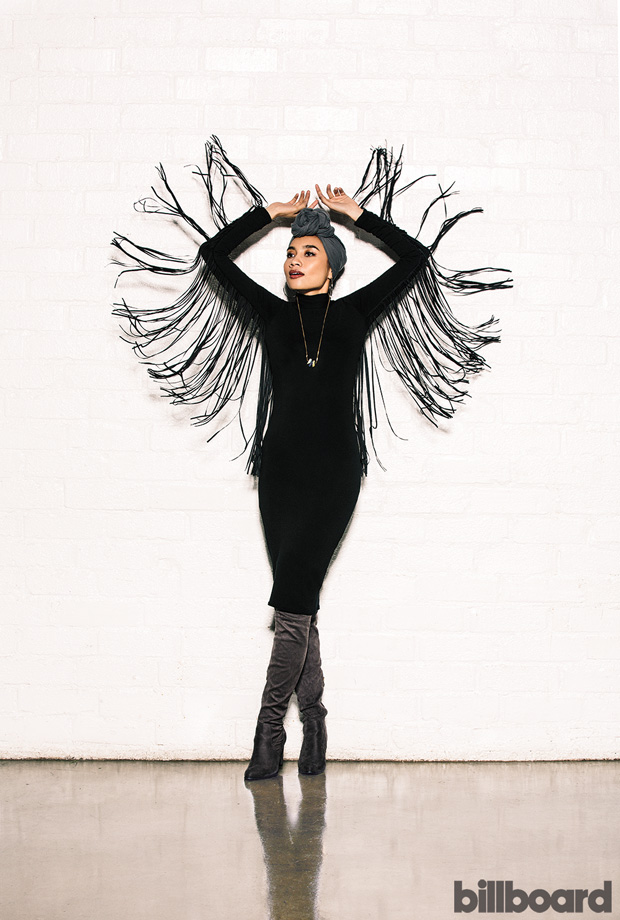Yuna Has A Message For Anyone Who Thinks She Is Oppressed For Covering Up Her Body
"It's my choice — I'm Free."
Yuna — born Yunalis Mat Zara'ai — is a household name in Malaysia. But for the rest of the world, the Malaysian-born singer is still a pretty new name. However, if her third and best album Chapters is any sign, soon Yuna's name will be known by everyone everywhere.
In a recent interview with Billboard, Yuna, who is a devout Muslim and shows it most visibly in the way that she dresses — hair always wrapped in a hijab, a stylishly chaste wardrobe that covers her from neck to toe — opened up about being a Muslim in the music industry and her struggle to keep her music strictly about her music and not so much her look. Although, it is hard to ignore her style!
While she is criticised for the way she dresses, you know she couldn't care less about such critics when you read her views:
"People say, 'You should let your hair out; you shouldn't be oppressed — you're not in Malaysia anymore. You should show your curves and be proud of it.' But I am proud — it's my choice to cover up my body. I'm not oppressed — I'm free," she told Billboard.
Yuna is different. She stands out as an artist who doesn't follow the crowd.
In fact, her distinctive look, courtesy her Malaysian Muslim culture, makes her stand out (and in a good way) in the mainstream pop and R&B worlds. Yuna, with her omnipresent head scarves, is a defiantly demure statement in a field where female artists are expected to flaunt their bodies, regardless of their musical prowess.
And did you know she became a lawyer, almost?
Raised in Alor Setar, by her legal adviser father and chemistry teacher mother, Yuna spent her childhood focused on her education, set on becoming a lawyer.
But in between hitting the books, she taught herself guitar by watching YouTube, writing songs in both Malay and English, inspired by her heroes Lauryn Hill (“she was life-changing for me”) and Feist.
Soon music become her priority even before she graduated from uni in 2009.
Yuna, who is no fan of Donald Trump who is "out there promoting hate, violence", believes that music can soften people's hearts
"...even if they have a lot of hate. Music can do that if it's beautiful and honest. If I can do that -- soften just one person's heart -- I consider myself successful already," she told Billboard. You can read her full interview with Billboard, here.

